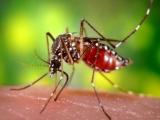In Zika developments today, the US Centers for Disease Control and Prevention (CDC) added four more countries—Angola, Guinea-Bissau, Maldives, and Solomon Islands—to its travel guidance for the disease, and the World Health Organization (WHO) unveiled a new classification system for identifying countries at risk.
On the research front, teams reported new findings on Zika persistence in different body tissues, the length of the incubation period in symptomatic people, and whether Aedes mosquitoes pass the virus to their offspring.
CDC adds 4 nations to Zika travel guidance
The CDC announcement adds Angola, Guinea-Bissau, Maldives, and Solomon Island to a long list of countries on its travel advisory. For all four, public health officials are reporting that mosquitoes infected with Zika virus are spreading the disease to people.
The CDC's Angola and Maldives advisories includes maps showing parts of the country that are above 6,500 feet elevation, thought to be a lower risk, because mosquitos that spread Zika don't usually live at higher elevations.
The CDC has level 2 travel notices—meaning visitors should practice enhanced precautions—in place for several countries in regions of the world that have reported local Zika spread. It recommends that all travelers to those countries take precautions to avoid mosquito bites and to watch for symptoms after returning to the United States.
The guidance also urges pregnant women to avoid travel to affected countries and for female travelers who are considering pregnancy to talk to their doctors before heading to those destinations.
WHO unveils new risk classification
In its Zika situation report, today, the WHO released a new country risk classification system, which adds a new category for countries that have Aedes aegypti mosquitoes—the main transmission vector—but no documented transmission to humans. Many of the countries in the new category 4 are in Africa, but locations from five other WHO regions are also on the list.
The WHO said the CDC and the European Centre for Disease Prevention and Control were also involved in developing the new classification system. The WHO strongly encourages all countries with Ae aegypti mosquitoes to enhance their early warning systems for Zika virus and its complications, even if they've never Zika transmission in humans.
In other outbreak developments, the WHO said since Feb 1, two more countries—Mexico and St. Martin—have reported their first Zika-linked birth defects. Thirty-one countries have now reported microcephaly or other central nervous system complications in infants or fetuses.
Also, two more nations have reported their first Zika-linked Guillain-Barre syndrome complications, Curacao and Trinidad and Tobago, raising the total to 23.
Studies on viral persistence, incubation, mosquitoes
- Zika virus can persist in a variety of tissues for as long as 35 days, according to a study of seven macaques that were experimentally infected with a Zika virus strain from Puerto Rico. A team based at Oregon Health and Science University (OHSU) published its findings yesterday in PLOS Pathogens. The investigators looked at viral persistence at three points: 7, 28, and 35 days postinfection. Zika persisted in the genital/urinary tract, multiple types of lymph nodes, spleen, joints, heart, as well as the male and female reproductive tract at 28 and 35 days.
- Tests on symptomatic travelers suggest that the incubation period for Zika virus is from 3 to 14 days, researchers from the CDC reported today in Emerging Infectious Diseases. They based their findings on test results, clinical information, and travel history of 197 people who tested positive for Zika in tests done by the CDC between Jan 1, 2015, and Jun 23, 2016. The group included 11 pregnant women, and the team found that incubation periods for them were no different than for nonpregnant travelers. People who start having symptoms more than 2 weeks after travel should be evaluation for other modes of transmission, such as sexual, the authors said.
- Both Ae aegypti and Ae albopictus mosquitoes can pass Zika virus to their offspring, which has implications for disease spread and control, researchers from New York state reported yesterday in a separate Emerging Infectious Diseases report. They based their findings on experiments with female mosquitoes that were offered a meal of sheep's blood that contained Zika virus. The infection rate in larvae was higher than in a previous study and similar for both mosquito species.
See also:
Mar 10 CDC travel advisory for Angola
Mar 10 CDC travel advisory for Guinea-Bissau
Mar 10 CDC travel advisory for Maldives
Mar 10 CDC travel advisory for Solomon Islands
Mar 10 WHO Zika update
Mar 9 OHSU press release
Mar 9 PLoS Pathog abstract
Mar 10 Emerg Infect Dis study on Zika incubation period
Mar 9 Emerg Infect Dis study on vertical Zika transmission in mosquitoes





















